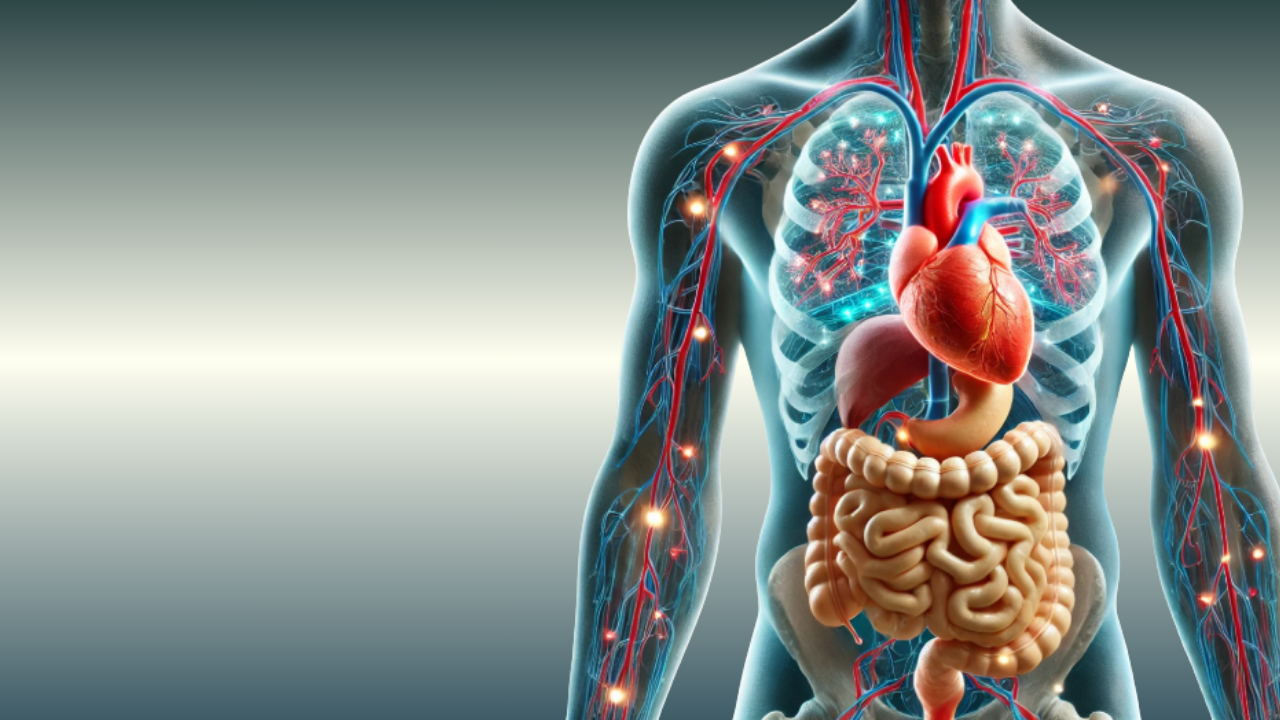How Your Gut Microbiome Affects Heart Health
Feb 26, 2025
Did you know that your gut might just be the unsung hero of your heart health? Recent scientific research has uncovered remarkable connections between the trillions of microbes living in your digestive system and cardiovascular function. Your gut microbiome plays a crucial role in keeping your heart strong and healthy. Here's why this connection matters for your overall wellness.
3 Evidence-Based Ways Your Gut Microbiome Affects Heart Health:
- Inflammation Regulation: A balanced gut microbiome acts as a natural defense system for your heart by managing inflammation levels. Beneficial bacteria strengthen your intestinal barrier (gut lining), preventing harmful compounds from entering your bloodstream and triggering inflammatory responses that damage heart tissue.
- Metabolite Production: Your gut bacteria transform the food you consume into active compounds like short-chain fatty acids that help regulate blood pressure and cholesterol levels. However, certain gut bacteria can produce TMAO (trimethylamine N-oxide), which research has linked to increased cardiovascular disease risk. A diverse microbiome helps maintain this delicate balance.
- Cholesterol Management: Soluble fiber serves both your gut and heart health simultaneously. The fiber that nourishes beneficial gut bacteria directly contributes to lowering LDL cholesterol levels. This gut-heart pathway explains why high-fiber diets consistently correlate with improved cardiovascular outcomes in clinical studies.
4 Practical Strategies to Optimize Both Gut and Heart Health:
- Increase Dietary Diversity 🌈: Incorporate a wide spectrum of colorful vegetables, fruits, legumes, and whole grains into your meals. Each color contains different polyphenols and fibers that promote microbiome diversity and resilience. Modern agricultural practices have reduced soil nutrient content, making variety even more important for complete nutritional intake.
- Include Fermented Foods 🥒: Regularly consume probiotic-rich foods like yogurt, kefir, sauerkraut, kimchi, and kombucha. Clinical research indicates these fermented foods introduce beneficial bacterial strains that support cardiovascular function through improved blood pressure regulation and healthier cholesterol profiles.
- Minimize Ultra-Processed Foods 🚫: Highly processed foods disrupt gut microbial balance and promote inflammation throughout the body, including the cardiovascular system. Focus on whole, minimally processed foods to create an intestinal environment that supports both gut and heart health.
- Prioritize Regular Exercise 🏃♀️: Physical activity benefits extend beyond muscle strength to include microbiome composition. Exercise enhances gut motility (peristalsis), optimizing transit time and preventing toxin accumulation in the intestines. This improved gut function, combined with a balanced microbiome and healthy gut barrier, significantly contributes to cardiovascular health maintenance.
Key Takeaways for Optimal Gut-Heart Health
The gut-microbiome-heart connection represents one of the most promising areas in preventive cardiology. Healthcare providers increasingly recognize that addressing gut health may be an essential component of cardiovascular disease prevention and treatment protocols.
By nurturing your gut microbiome through evidence-based nutrition and lifestyle approaches, you're simultaneously supporting your heart—creating a powerful synergy for overall health and longevity.
2025 Gut Health Summit - April 5th | Join our comprehensive wellness event featuring leading experts in gastroenterology, cardiology, mental health, and financial wellness. These specialists will share practical, science-backed strategies for whole-person health optimization. In-person and virtual attendance options available for your convenience.

